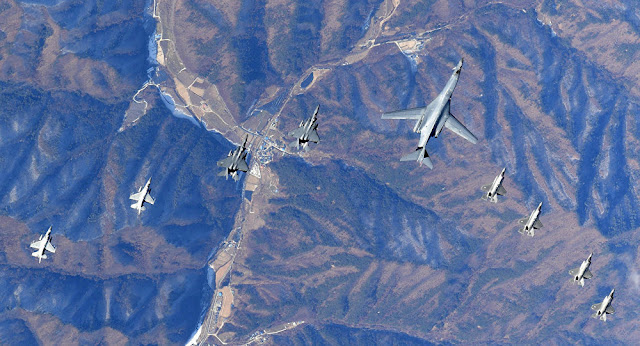To
the Brink: New UN Sanctions Seen as Ineffective to Halt DPRK Nuke
Development
23
December, 2017
As
Pyongyang digs in its heels and Washington continues its threats,
global experts suggest that new UN sanctions against North Korea will
not have the desired effect, only increasing the possibility of
nuclear conflict in the region.
Following
Friday's unanimous United Nations Security Council (UNSC) vote
to place additional sanctions on the People's Democratic
Republic of Korea (DPRK), global security experts have noted
that previous actions have not been successful, as Pyongyang
nuclear weapon and ballistic missile development continues unabated.
The
new sanctions, beginning January 2017, will significantly affect
North Korean heavy industry, including machinery, chemical and
military equipment manufacture.
More
invasive US demands, such as shutting off all oil imports
and boarding all DPRK ships operating on the open ocean, would
have pushed Pyongyang into a corner, suggested Korean affairs
expert Lu Chao with the Liaoning Academy of Social Sciences
in the northeast China city of Shenyang, cited by the
South China Morning Post (SCMP).
The
new sanctions will see some 90 percent of refined oil imports
cut off to the DPRK, as well as a ban on the
profitable export of North Korean food products, machinery,
electrical equipment, stone and wood.
Seeking
to mitigate the possibility of desperate military moves
by an increasingly throttled Pyongyang, the repatriation of DPRK
laborers who work outside of the hermit state — sending
much-needed cash back to the beleaguered country — was
pushed back two years at the request of Russia, according
to SCMP.
But
new sanctions and bans are seen by many to be a last-ditch
tactic to get the DPRK to end its nuclear weapons
development and dismantle its missile operations, particularly
as Pyongyang has insisted that it regards its nuclear weapons
as a means of self-defense, and Washington continues
to assert that the US will never accept North Korea as a
nuclear power.
Beijing
also has shifted its stance on restraining Pyongyang, now
acknowledging that DPRK nuclear weapons could target vulnerable
border territories between the two Asian nations.
As
the most powerful nations in the world continue to argue
over how to resolve the ongoing nuclear crisis on the
Korean peninsula, Chinese military and security experts observe that
the new
US-led UN sanctions against Pyongyang will be no more effective
than previous moves in curbing the threat posed by DPRK
nuclear weapons and intercontinental ballistic missile development.
Korean
expert Zhao Tong with the Tsinghua Carnegie Centre in Beijing
suggested that any new sanctions only serve to increase the
rhetoric of war in the region.
"If
economic blockades and diplomatic isolation are not enough
to persuade North Korea to give up its nuclear
program, the risk of war is severe," Zhao said.
Professor
of international strategic research Zhang Liangui, with the
Communist Party's Central Party School, noted that simple economic
pressure would not be successful in causing a policy about-face
by DPRK leader Kim Jong-un, cited by SCMP.
"In
the current situation, North Korea will continue with its policy
of pushing forward its nuclear development program," Zhang
asserted.
"The
US has said that it won't acknowledge Pyongyang as a nuclear
power," he pointed out, adding, "if the negotiations and
sanctions fail to work and neither side backs down, war is
inevitable."




No comments:
Post a Comment
Note: only a member of this blog may post a comment.